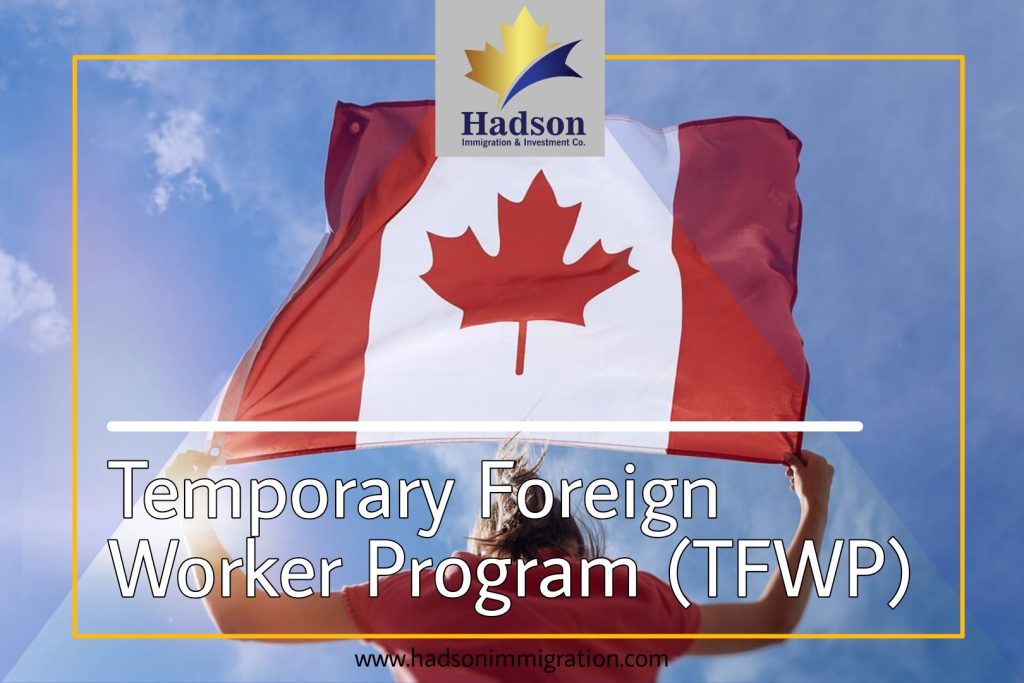The Temporary Foreign Worker Program (TFWP) allows Canadian employers the ability to temporarily hire foreign nationals in order to fill shortages in Canada’s labor force.
The TFWP is jointly operated by Immigration, Refugees and Citizenship Canada (IRCC) and Employment and Social Development Canada (ESDC).
The TFWP helps Canadian employers hire the foreign talent they need. It also makes sure that these foreign workers get the rights and protections they deserve to be safely employed in Canada.
One key characteristic of the TFWP is the requirement for a Labor Market Impact Assessment (LMIA).
Any employer wishing to hire a foreign national through TFWP must first obtain an LMIA demonstrating that they were unable to find a Canadian citizen or permanent resident to fill the position.
Only after obtaining an LMIA will an employer be able to officially hire a foreign national, enabling the foreign national, in turn, to apply for a Canadian work permit or Canadian permanent residence.
There do exist a number of temporary worker options which allow employers to hire workers without requiring an LMIA. These options are organized within the International Mobility Program which is designed to process LMIA-exempt work permit applications.
Labor Market Impact Assessments
A Labour Market Impact Assessment (LMIA) is a document issued by ESDC assessing the impact hiring a foreign worker will have on the Canadian labor market.
A positive LMIA indicates that there is no Canadian citizen or permanent resident to fill a position, therefore enabling an employer to hire a foreign national.
A negative LMIA indicates that a position should be filled by a Canadian citizen or permanent resident.

International Mobility Program
The International Mobility Program (IMP) enables Canadian employers to hire temporary foreign workers without the need for a Labour Market Impact Assessment (LMIA).
While most employers hiring foreign workers will require an LMIA, there are certain circumstances where LMIA-exemptions exist. These LMIA exemptions are based on the following conditions:
- broader economic, cultural or other competitive advantages for Canada; and
- reciprocal benefits enjoyed by Canadians and permanent residents.
Global Talent Stream
The Global Talent Stream (GTS) is a two-year pilot program launched in June 2017 through a partnership between Immigration, Refugees and Citizenship Canada (IRCC) and Employment and Social Development Canada (ESDC).
The GTS assists certain Canadian employers to hire highly-skilled global talent enabling them to compete on an international scale. Employers who are successfully referred to the program will be able to expedite the process for hiring foreign nationals through the Global Skills Strategy.
High-Wage Workers
The first step in this process requires the employer to obtain a Labour Market Impact Assessment (LMIA) demonstrating that they were unable to find a Canadian citizen or permanent resident to fill the position.
Once an employer is issued a positive LMIA for a high-wage skilled position, they must inform the foreign worker of the LMIA results and notify them that they must apply for their authorization to work in Canada prior to the expiration of the LMIA.
Once a high-wage worker receives a positive LMIA from an employer alongside their official signed employment contract, they may apply for authorization to work in Canada either through a work permit application or a permanent residency application, depending on their eligibility.
Low-Wage Workers
The first step in this process requires the employer to obtain a Labour Market Impact Assessment (LMIA) demonstrating that they were unable to find a Canadian citizen or permanent resident to fill the position.
Once an employer is issued a positive LMIA for a low-wage skilled position, they must inform the foreign worker of the LMIA results and notify them that they must apply for their authorization to work in Canada prior to the expiration of the LMIA.
Once a low-wage worker receives a positive LMIA from an employer alongside their official signed employment contract, they may apply for authorization to work in Canada either through a work permit application or a permanent residency application, depending on their eligibility.
in 2019, the Canadian government will launch two new immigration pilot programs for caregivers, the Home Child Care Provider pilot and the Home Support Worker pilot.
These programs will launch in 2019, but information regarding the exact launch date, as well as eligibility criteria and application procedure, has not yet been released.
Temporary Foreign Worker in Quebec
The province of Quebec retains significant autonomy over its immigration policies and procedures. For this reason, the province has a few unique distinctions regarding the hiring of foreign workers.







